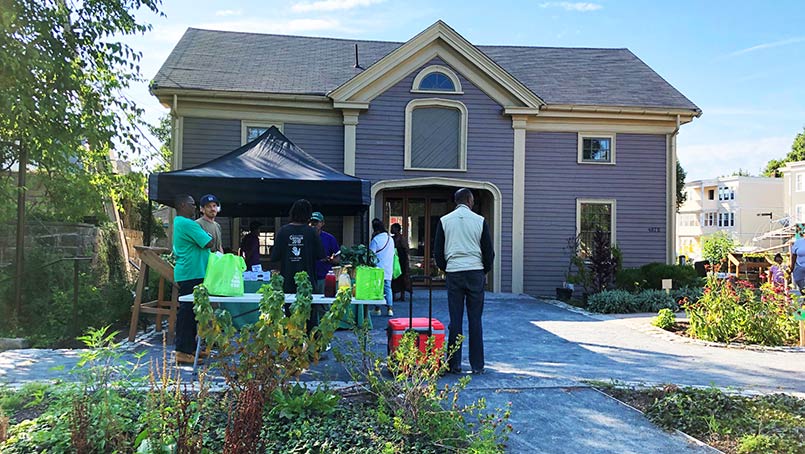
16 Aug People in Preservation: Friday Farm Stands at the Fowler Clark Epstein Farm
Built between 1786 and 1806, the Fowler Clark Epstein Farm remains among the earliest intact, vernacular examples of an agricultural property in the Commonwealth’s cities. The original farmhouse is located on land that was once part of a large Dorchester estate encompassing over 330 acres. Over its 200 year history, it was primarily owned by three families, beginning with Samuel Fowler, a Dorchester yeoman in the late 18th century. With partners, Trust for Public Land, the Urban Farming Institute, HBI successfully redeveloped the farm to be used as the new headquarters for the Urban Farming Institute. This article is the fourth part of our “People in Preservation” series that profiles the people that live in or work on HBI historic preservation projects.
A bounty of produce is growing at the Fowler Clark Epstein Farm (1787). Now the headquarters of the Urban Farming Institute, the once vacant farm land produces a wide variety of vegetables which can be purchased on summer Fridays. The staff from UFI sells produce pulled right from the ground right in front of the historic barn including, zucchini, salad greens, summer squash, eggplant, cucumbers, and garlic.
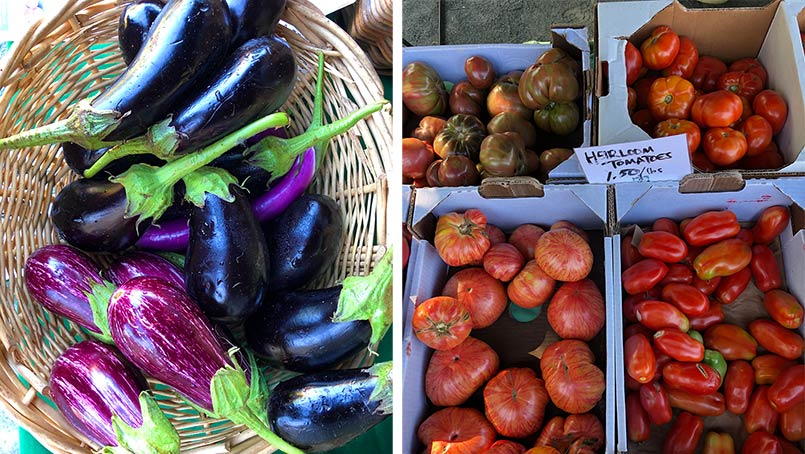
Amelia Hall, an AmeriCorp member, has visited the farm a few times this month, coming once with a field trip from Mattahunt School and the Ceeds4Change program (Community Empowerment Through Education, Development, and Service). On Friday, she came back for some farm fresh veggies and reminisced about the first time she visited: “I found this spot at the beginning of my service in 2018, and came back on a few Fridays and then for a lecture given by Lelia Penman called Farming While Black.
A few local entrepreneurs sell their wares at the farm stand. Baba Rumas is a graduate of the farmer-training program with UFI. These days he is a personal chef and runs a studio in Dorchester. For his personal chef business, he grows some produce including carrots and beets at home and cooks/bakes breads, muffins, and vegan and traditional home cooking. On Fridays, Baba also sells fresh squeezed juice at the farm stand including delicious flavors like carrot and ginger; beets, ginger, and grapefruit; and ginger, pineapple with cinnamon.
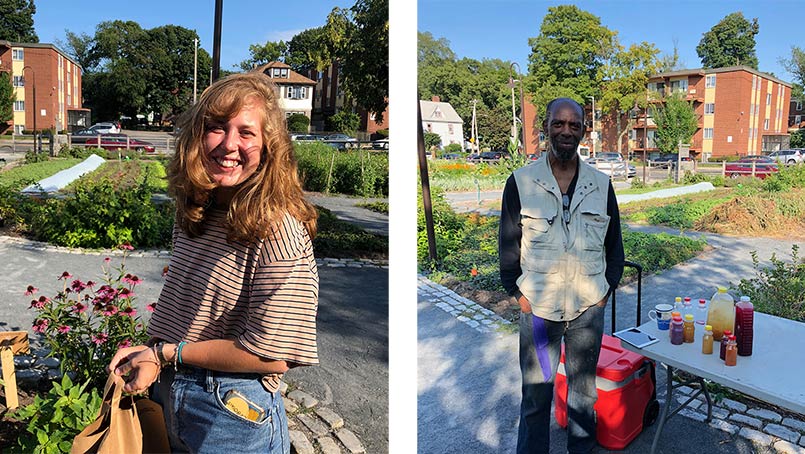
(Left: Amelia Hall, Right: Baba Rumas)
Coral, a local mom comes to the farm for the convenience, as it is walking distance from her home, and, “they take EBT and SNAP, so the program reimburses me the money. In short, it’s free veggies.” The farm stand uses the direct swipe redemption option so you can swipe your card directly. “I’ve walked by the farm for years and when it was run down, I never really gave it much thought. Now it is fixed up, and I can stop by and buy food.”
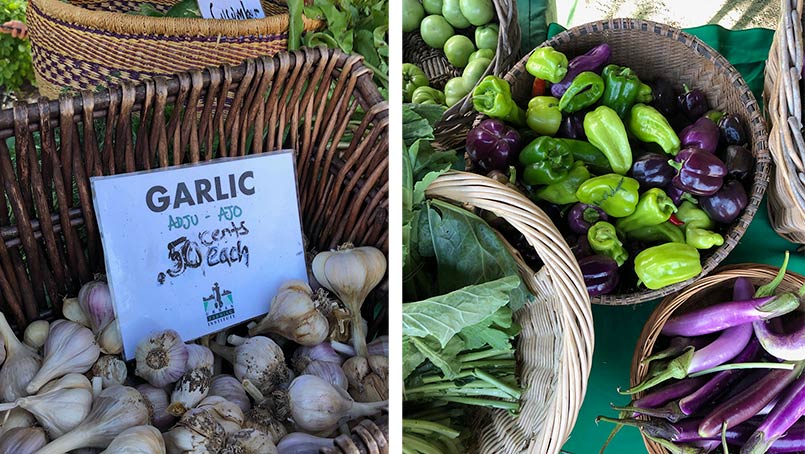 Nataka Crayton is the Operations Manager and lives on-site in the apartment behind the farm house. * “I feel like living here allows me to have a more intimate relationship with the community, especially compared to a normal business where the building that goes vacant after 5pm”. She is proud to welcome first time buyers, neighbors, and regulars, reminding them, “this is your farm too”. Nataka works to make sure people know the farm is open to explore and visit even when the farm stand is not open. “People still don’t know about the space and they don’t know if the space is for you. Don’t just look from outside the fence. Come on in.” Nataka runs day-to-day farming operations, but also helps with the farmer training program. Last week, they finished a project with the farming young farmers to map the medicinal plants on the site and mark all of the plants on the farm.
Nataka Crayton is the Operations Manager and lives on-site in the apartment behind the farm house. * “I feel like living here allows me to have a more intimate relationship with the community, especially compared to a normal business where the building that goes vacant after 5pm”. She is proud to welcome first time buyers, neighbors, and regulars, reminding them, “this is your farm too”. Nataka works to make sure people know the farm is open to explore and visit even when the farm stand is not open. “People still don’t know about the space and they don’t know if the space is for you. Don’t just look from outside the fence. Come on in.” Nataka runs day-to-day farming operations, but also helps with the farmer training program. Last week, they finished a project with the farming young farmers to map the medicinal plants on the site and mark all of the plants on the farm.
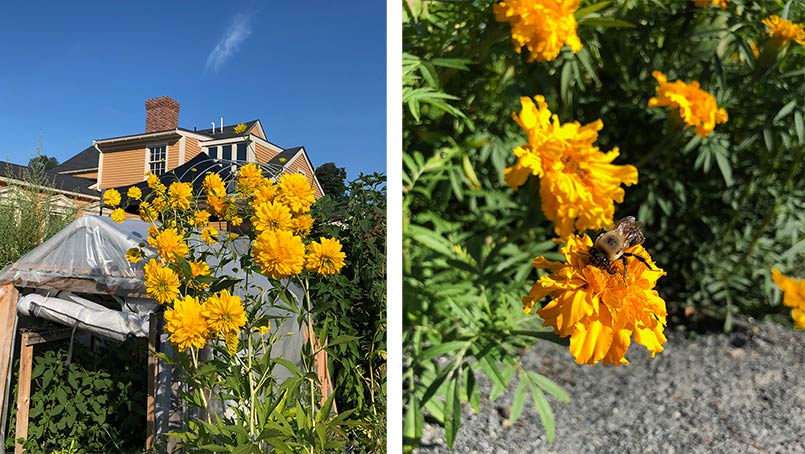 This fall, UFI will complete the construction of a permanent greenhouse at the rear of the site, which will allow them to grow produce and flowers all year-round. The foundation for the greenhouse was laid and the construction will continue through September.
This fall, UFI will complete the construction of a permanent greenhouse at the rear of the site, which will allow them to grow produce and flowers all year-round. The foundation for the greenhouse was laid and the construction will continue through September.
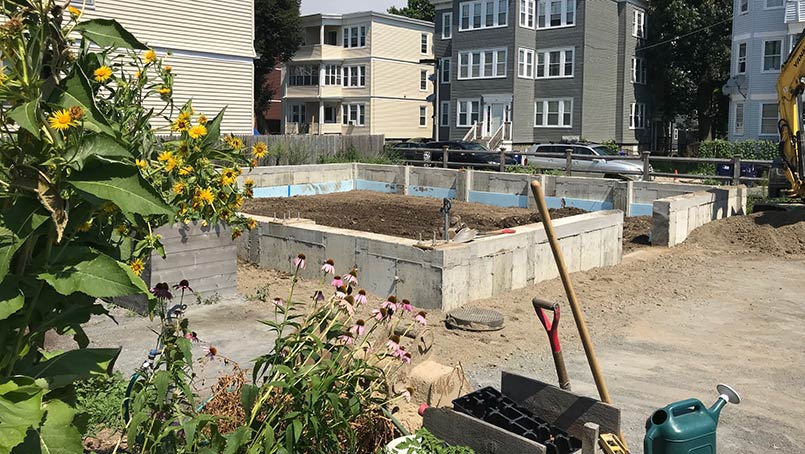
*The apartment was a 1967 addition to the farm house that was added to the structure by the farm’s last owner, Jorge Epstein.



